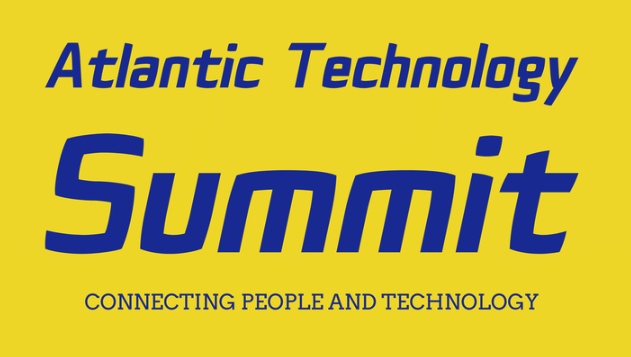For Marcel LeBrun, it was like winning the Stanley Cup.
“Just like hockey players who work all their lives toward that goal of winning the Stanley Cup, entrepreneurs work very hard to build a startup into a successful business,” said LeBrun, reflecting on the landmark exit of the company he co-founded, Radian6. “We felt like we won the Stanley Cup of tech entrepreneurship. It is also a great feeling to achieve this together with a team of people you really enjoy working with every day.”
The exit of Radian6, which was announced five years ago last week, on March 30, 2011, transformed the landscape across Atlantic Canada in startups and technology. LeBrun’s company sold to Salesforce.com of San Francisco for US$276 million in cash and US$50 million in stock. Certainly there have been larger Atlantic Canadian deals -- only seven months after the Radian6 exit to Salesforce.com, Q1 Labs, originally of Fredericton, sold to IBM for an estimated US$500 million. And Ocean Nutrition Canada of Dartmouth sold out to Royal DSM for $540 million in 2012. But it was the Radian6 deal that changed the startup ecosystem for good.
The deal rewarded a group of angels, who reinvested in other companies. It allowed an early institutional investor to invest more in New Brunswick. It helped to finance the regional accelerator Propel ICT. It drew other tech entrepreneurs into the startup field and it established Salesforce.com on Canada’s east coast.
“The exit resulted in getting the fastest growing software company in the world, Salesforce.com, to set up shop here in New Brunswick,” said LeBrun. “That is huge. This is the most innovative and fastest growing company in tech and software. How do you attract a company like that?
Only through an acquisition. They are an important presence here, creating leading edge-jobs, contributing to economic growth, investing in charitable causes, and developing top tech and business talent which is very important to our future growth.”
Read Our Most Recent Entrevestor Intelligence Report
Founded by LeBrun, Chris Newton and Chris Ramsey in 2006, Fredericton-based Radian6 quickly established itself as the pre-eminent company in the world for monitoring and analyzing social media. Its technology monitored hundreds of millions of conversations every day across Facebook, Twitter, YouTube, blogs and online communities, delivering insights in real-time. The company was profitable by 2009, and it was used by half of the Fortune 500, including Dell, GE, Kodak, Molson Coors, Pepsico, and UPS. Radian6 employed 350 people in New Brunswick and Nova Scotia when the deal closed.
The sale of Radian6 became a windfall for many Atlantic Canadian investors in the company. For example, the New Brunswick Innovation Foundation turned two investments in Radian6 totalling $326,973 into an investment return of $9.25 million. The money has helped support investments in numerous companies since then.
“Since the acquisition, there has definitely been an increase in entrepreneurship in the form of new incubators and many, many new startups,” said Ramsey.
“Many of those startups are doing well, some doing very well. It’s a numbers game. Many will burn out, a few will make it, and a few of those will become leaders in their industries, big enough to make it all worth it. The ones that don’t make it, they will graduate new, skilled people who will hopefully go on to create or join new startups, and the ecosystem will continue to grow.”
The next Facebook, Google or Amazon can be created and built in Atlantic Canada, Ramsey added.
Canada’s Venture Capital & Private Equity Association named the Radian6 sale the 2011 VC Deal of the Year for its venture capital backers Summerhill Venture Partners, Brightspark Ventures and BDC Capital.
Our Analysis of the CVCA Deal of the Year Award
Best of all, the company continued to grow in Atlantic Canada as part of Salesforce. A year later, Salesforce.com did another Atlantic Canadian deal, buying GoInstant of Halifax, reportedly for more than $70 million.
“An exit isn’t an event where we lose a local company to the U.S.,” said LeBrun. “Rather, it is an event where we gain a new company from the U.S. This brings in more outside capital and a lot of spin off benefits. Also, you often see employees from the start-up eventually spinning-out to start new ventures of their own. It has a generational effect.”
He said the Atlantic region has a huge potential but needs more talent.
“The potential is always infinite,” said LeBrun. “There is no better time in history to be innovating and solving our world’s most important problems. With the internet, cloud computing, mobile technology, the internet of things, big data, and the world of socially connected consumers, the opportunities are boundless and easier to address than ever before. I also love the growth of impact-minded entrepreneurs - those who are not just looking to maximize shareholder value but also looking to improve our communities and our environment. It is a great time to be an entrepreneur. The global market potential is incredible and it is entirely accessible from any location. All that is needed is execution.”
According to the Information and Communications Technology Council of Canada, ICT sector growth in Atlantic Canada has surged since the Radian6 deal. New Brunswick saw its sector grow more than 8 percent since the deal while the ICT industry in Nova Scotia grew 8.3 per cent in 2014 alone. Prince Edward Island is one of only four Canadian provinces to experience positive ICT GDP growth each year since 2011.
“It has grown tremendously thanks to the effort of many dedicated tech leaders, mentors and investors in our community who choose to contribute their time and energy for the betterment of our region,” said LeBrun. “Just look at the last two cohorts of companies that just came through the Propel ICT programs. The activity level is incredible. Radian6 played just a small part and the credit goes to our region’s mentors, teachers, investors and incubators.”
Propel ICT’s Launch36 accelerator became one of the first resulting activities to follow the Radian6 and Q1 Labs deals. The accelerator in 2011 set a goal to graduate 36 companies within three years. Propel ICT exceeded its goal in 2015 with 49 Atlantic Canadian startups emerging from Propel’s Launch36 accelerator in 33 months.
“The potential is to hit over 200 startups per year in the total ICT ecosystem,” said Gerry Pond, one of Radian6’s early investors. As well as being a driving force behind Propel ICT, Pond and several other investors in Radian6 have created East Valley Ventures, which has invested in more than 30 startups in the past five years, all but one in the Maritimes.
The portfolio includes such highflyers as Resson Aerospace, Smart Skin Technologies and Spotful.
“We have to keep in mind there is a high turnover rate of 30 to 40 percent after five years in operation,” said Pond. “This is a normal condition in healthy ecosystems globally. However we should see a couple more Radian6s or Q1 Labs by 2020. I’m personally out on the far end of that, predicting a $1 billion exit by 2019 from Atlantic Canada.”
He added that Propel ICT now operates in all four Atlantic Provinces and graduated 33 companies in 2015 alone.
“Propel ICT now serves all four provinces and the next cohort’s two streams received 162 applicants by February 2016,” said Pond. “I estimate this is about a five times growth factor in the last five years.”
Propel ICT’s success is one example of how the Radian6 exit impacted the region, he added. “It put New Brunswick and the Maritimes on the map as a credible centre for ICT startups in new tech fields,” said Pond.
The former head of New Brunswick Telecom said he remembers the Radian6 exit well, and that it put millions of dollars in circulation for startups, the ecosystem and tax revenue.
“It was rewarding on two fronts,” said Pond. “I was part of a team that built $400 million of value in just five years in New Brunswick with New Brunswick founders and a New Brunswick management team. It returned on my investment 23 times, a record rate of return in the millions for me and other angel investors.”
And as for LeBrun himself, he spent almost five years with Salesforce as Senior Vice-President of Tech & Product Marketing Cloud. He left the company in September, 2015, and now describes himself as a tech and social impact entrepreneur.
“It is a rare and special accomplishment that we will always enjoy looking back on,” he said, reflecting on Radian6. “However, an exit isn’t the final goal of business. It is a step along the way. It was important for us to continue to work to see that the company was successful, now as part of Salesforce.com, and to ensure that we built a great reputation in the region for having created lasting value.”
Mark Taylor, a verteran journalist and entrepreneur, is the owner of Fredericton-based Delora Media.










